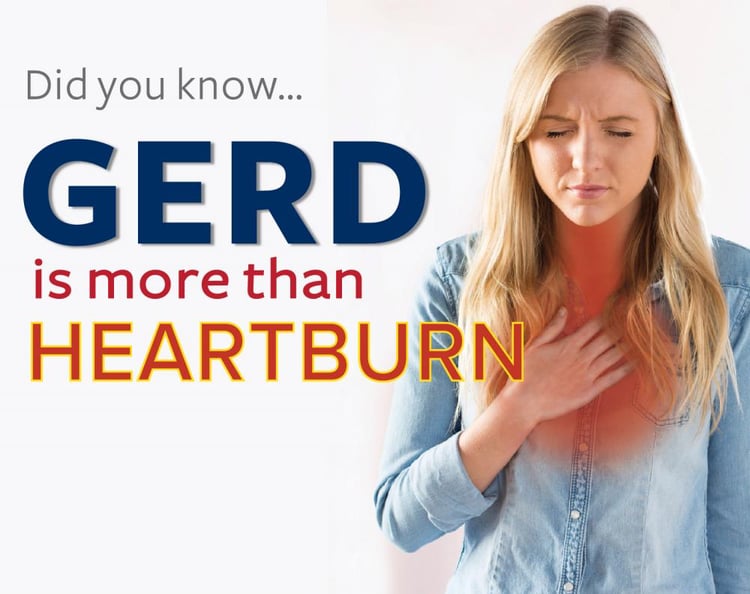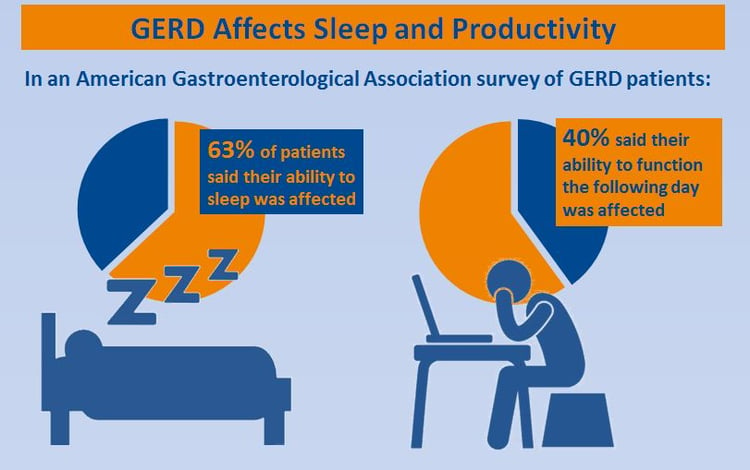
It’s not surprising that the week of Thanksgiving was chosen as GERD awareness week, especially with our tendency to indulge in a little too much of everything! GERD (gastroesophageal reflux disease) is a common disease that affects millions of Americans.
As many as 76% of people with obstructive sleep apnea also suffer from nighttime GERD symptoms. GERD can have a dramatic impact on sleep, leading to risks of aspirating these stomach acids while sleeping, aggravating obstructive sleep apnea (OSA), and experiencing the sleep fragmentation that comes with every time you wake up to the discomfort of heartburn symptoms.
GERD and sleep apnea often coincide. Research suggests that the backup of stomach acid in GERD may produce spasms in the vocal cords (larynx), thereby blocking the flow of air to the lungs and causing apnea. Apnea itself may also cause pressure changes that trigger GERD.
GERD has been shown to adversely affect sleep by awakening people from sleep during the night. More commonly, people with GERD experience multiple, short arousals that they are unable to recollect which results in sleep fragmentation.

Several studies have estimated that 1 in 5 (20%) of the U.S. adult population experience GERD-related symptoms at least once a week. Studies have also demonstrated that up to 4 in 5 (79%) of GERD patients experience nighttime symptoms. Of those patients with nighttime heartburn, 63% reported that the symptoms affected their sleep and 40% stated that symptoms impacted their ability to function the following day.
Some treatment options can work to improve both sleep apnea and GERD simultaneously, while others are more specific to a particular condition. Treatment options for GERD and sleep apnea include:
• Losing weight, which is a factor for both GERD and sleep apnea
• Taking heartburn medication
• Using CPAP device – a face mask worn at night to help treat sleep apnea
• Being mindful of what you eat – some foods trigger more acid than others
By working with one of our sleep specialist we can help you control and treat both of these conditions. Let us help you, book your appointment today!
ANCSLEEP BLOG- Good Sleep Starts Here

